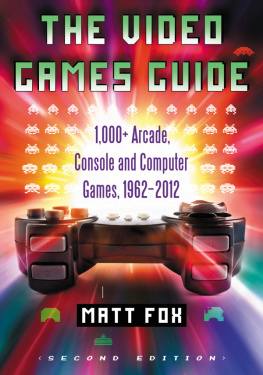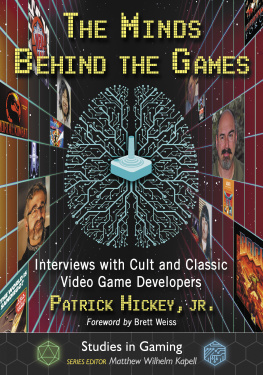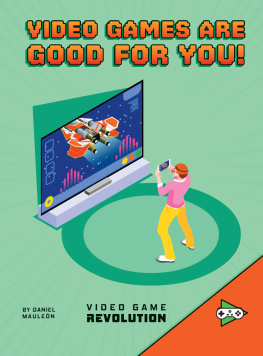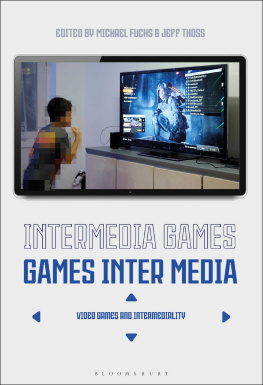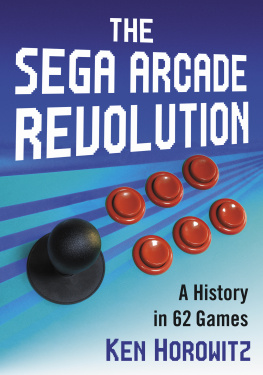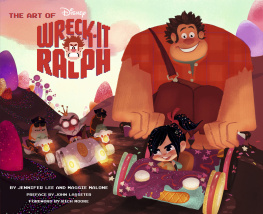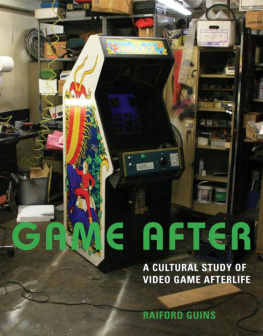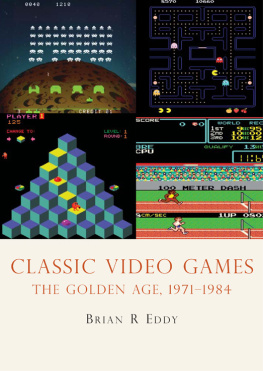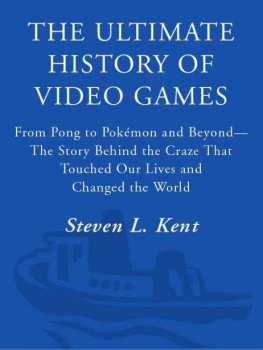Warren Davis - Creating Q*bert and Other Classic Video Arcade Games
Here you can read online Warren Davis - Creating Q*bert and Other Classic Video Arcade Games full text of the book (entire story) in english for free. Download pdf and epub, get meaning, cover and reviews about this ebook. publisher: Santa Monica Press, genre: Religion. Description of the work, (preface) as well as reviews are available. Best literature library LitArk.com created for fans of good reading and offers a wide selection of genres:
Romance novel
Science fiction
Adventure
Detective
Science
History
Home and family
Prose
Art
Politics
Computer
Non-fiction
Religion
Business
Children
Humor
Choose a favorite category and find really read worthwhile books. Enjoy immersion in the world of imagination, feel the emotions of the characters or learn something new for yourself, make an fascinating discovery.

- Book:Creating Q*bert and Other Classic Video Arcade Games
- Author:
- Publisher:Santa Monica Press
- Genre:
- Rating:3 / 5
- Favourites:Add to favourites
- Your mark:
- 60
- 1
- 2
- 3
- 4
- 5
Creating Q*bert and Other Classic Video Arcade Games: summary, description and annotation
We offer to read an annotation, description, summary or preface (depends on what the author of the book "Creating Q*bert and Other Classic Video Arcade Games" wrote himself). If you haven't found the necessary information about the book — write in the comments, we will try to find it.
Creating Q*bert and Other Classic Video Arcade Games — read online for free the complete book (whole text) full work
Below is the text of the book, divided by pages. System saving the place of the last page read, allows you to conveniently read the book "Creating Q*bert and Other Classic Video Arcade Games" online for free, without having to search again every time where you left off. Put a bookmark, and you can go to the page where you finished reading at any time.
Font size:
Interval:
Bookmark:
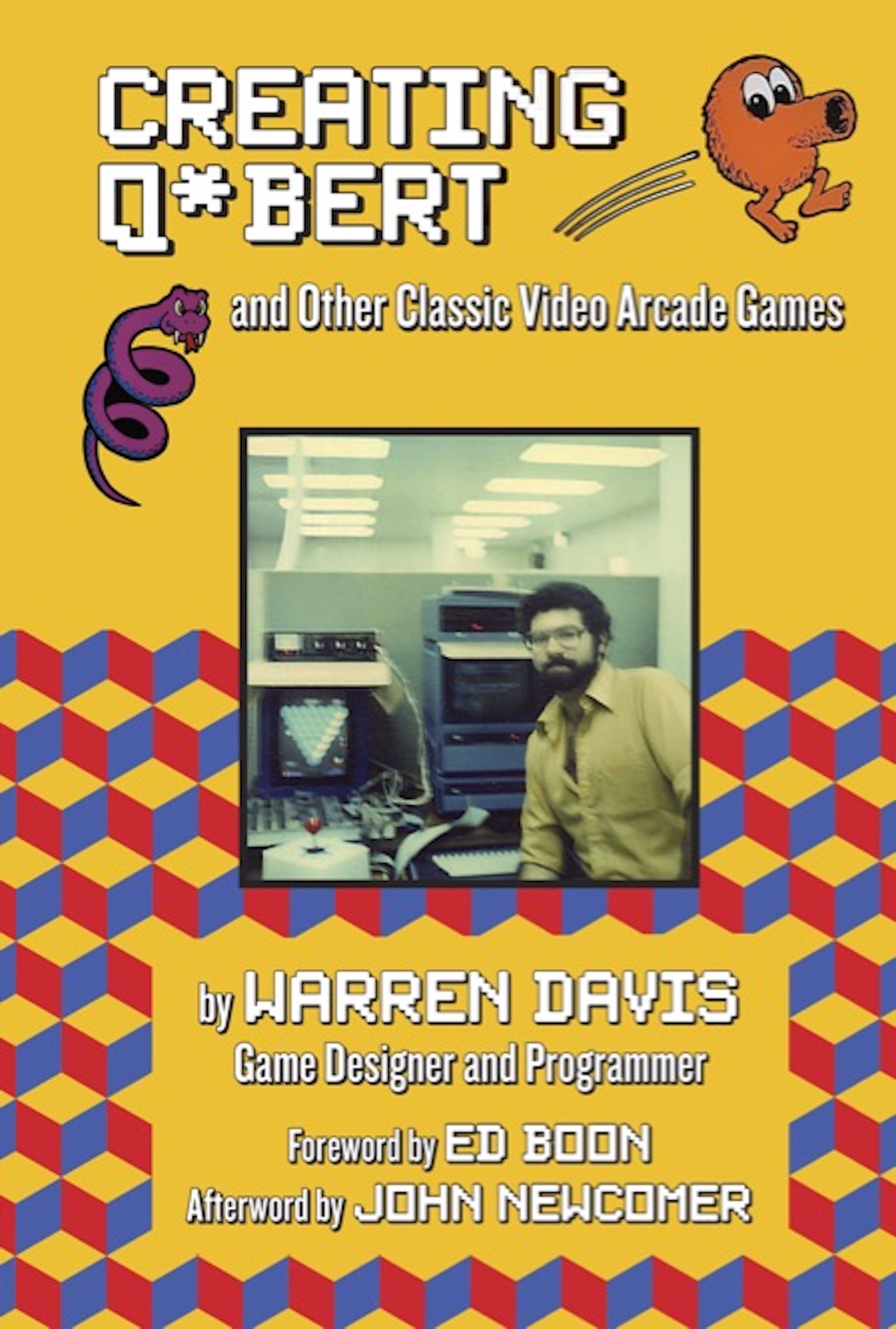
and Other Classic Video Arcade Games
by WARREN DAVIS
Foreword by ED BOON
Afterword by JOHN NEWCOMER
Copyright 2021 by Warren Davis
All rights reserved.
This book may not be reproduced in whole or in part or in any form or format without the written permission of the publisher.

Published by:
Santa Monica Press LLC
P.O. Box 850
Solana Beach, CA 92075
1-800-784-9553
www.santamonicapress.com
books@santamonicapress.com
Printed in the United States
Santa Monica Press books are available at special quantity discounts when purchased in bulk by corporations, organizations, or groups. Please call our Special Sales department at 1-800-784-9553.
This book is intended to provide general information. The publisher, author, distributor, and copyright owner are not engaged in rendering professional advice or services. The publisher, author, distributor, and copyright owner are not liable or responsible to any person or group with respect to any loss, illness, or injury caused or alleged to be caused by the information found in this book.
ISBN-13 978-1-59580-105-0
Publishers Cataloging-in-Publication data
Names: Davis, Warren B., 1956-, author. | Boon, Ed, foreword author. | Newcomer, John, afterword author.
Title: Creating Q*bert and other classic video arcade games / by Warren Davis; foreword by Ed Boon; afterword by John Newcomer.
Description: Solana Beach, CA: Santa Monica Press, 2021.
Identifiers: ISBN: 978-1-59580-105-0 (paperback) | 978-1-59580-785-4 (ebook)
Subjects: LCSH Davis, Warren B., 1956- | Video game designers--Biography. | Computer programmers--Biography. | Video games--Design--History. | Electronic games--Design--History. | BISAC BIOGRAPHY & AUTOBIOGRAPHY / Personal Memoirs | BIOGRAPHY & AUTOBIOGRAPHY / Entertainment & Performing Arts | GAMES AND ACTIVITIES / Video & Mobile | COMPUTERS / Programming / Games | COMPUTERS / Design, Graphics & Media / Video & Animation
Classification: LCC GV1469.3 .D38 2021 | DDC 794.8/092--dc23
Cover and interior design and production by Future Studio
Dedicated to Ron Waxman and Howie Rubin
by Ed Boon
Co-creator of Mortal Kombat and NetherRealm Studios creative director
Like many teenagers in the 80s, I was drawn into the world of video games. I not only loved playing them, but was obsessed with how they were made. That obsession drew me into computer programming and eventually I found myself working at Williams Electronics in October of 1986. Even though I was hired to program pinball machines, they put me in a dark section of the video game department referred to as the Dead Zone. This is where I met Warren Davis, whose cubicle was directly across from my office. Warren already had a number of games under his belt, including the classic game Q*bert. I soon learned Warren was one of a number of industry veterans I was working with, many of whom created some of my favorite games like Defender, Robotron, and Joust.
At Williams Electronics, Warren was working on multiple projects, including Joust 2, Lotto Fun (a video lottery game), and software tools to help artists work more efficiently. After learning who he was, I remember nagging Warren for details about how Q*bert was created but he was usually too busy to dive deep into that story. You can imagine how excited I was to read this book!
Today I think of Warren as both a celebrated and unsung hero at the same time. While he is certainly known as The Q*bert Guy, I feel his work at Williams/Midway made an even bigger impact on the game industry. Its just that fewer people know this.
During my three years in the pinball group, Warren was part of a small team building Williams next generation of video arcade hardware and software. By the time I joined the video game department, they had built a development foundation upon which future classic arcade games like NARC, Smash TV, Terminator 2, NBA Jam, and Mortal Kombat would be created.
What gave Williams/Midway games a competitive edge was their digitized graphics, which were created by converting video of real-world objects to game graphics. The result was a photo-realistic look that no other game company could touch. However, the process of digitizing game graphics was very time consuming for video artists. Warren wrote groundbreaking software tools that automated that digitizing process, animated our sprites, compressed our images, managed our color palettes, and probably more than I can remember. These utilities sped up our workflow exponentially. I cant overstate the impact Warren had on the development of Mortal Kombat and so many other Williams/Midway games.
As you might imagine, someone who created Q*bert and helped build the foundation for the Williams/Midway games probably has a lot of fascinating stories to tell. This book is a great collection of those stories. There is a genuine honesty here that covers not only the successes, but also the disappointments, disagreements, and flat-out arguments involved in making so many classic games. I loved reading not only how Q*bert was created, but also Warrens perspective on cancelled projects, office politics, as well as his departure and return to Williams/Midway.
Im writing this as one of many game makers who were not only inspired by Warrens games, but also benefitted immensely from the software tools he created. I had a great time reading this book, and particularly enjoyed Warrens (almost perfect) recollection of the early days in the Williams Dead Zone offices. Warren remembered who occupied every workspace! Except two, admitting but I have no recollection of who were in the other two. For the record, I was one of the forgotten two. But hey, its been 35 years! 
Throughout my career, many people have asked me: How do you become a video game creator? My answer to that question has changed gradually over the years. At the moment, its I havent the faintest idea.
The industry is so radically different from when I entered it way back in the prehistoric time of January 1982. Now there are so many areas of specialization: game designers, engine designers, engine programmers, effects programmers, scripters, A.I. programmers, U.I. programmers, U.I. designers, level designers, character animators, background animators, producers, asset managers, testers. Not to mention lighting designers, sound designers, voice and motion capture actors, and a whole slew of other types of people who all play a part in the creation of a video game.
When I started, if you wanted to create a game, you were one of three things: a programmer, an artist, or a sound designer. No one was just a game designeryou had to have at least one other useful skill. Sure, there were other important tasks, hardware design most critically. But as far as the creative team went, that was it. For myself, having no knowledge of sound design whatsoever, only a minimal ability as an artist, and a degree in computer engineering, my choices were limited. I did some hardware design work after college, but my love of computers always revolved around programming. To me, programming a computer was a means of artistic expression. Peoples responses to a computer program mimic their responses to art. It can inspire anger or frustration when it misbehaves. It can make you smile if the programs creator has added a little levity into it. And theres a satisfaction to be had when it does exactly what you wanted it to do.
Font size:
Interval:
Bookmark:
Similar books «Creating Q*bert and Other Classic Video Arcade Games»
Look at similar books to Creating Q*bert and Other Classic Video Arcade Games. We have selected literature similar in name and meaning in the hope of providing readers with more options to find new, interesting, not yet read works.
Discussion, reviews of the book Creating Q*bert and Other Classic Video Arcade Games and just readers' own opinions. Leave your comments, write what you think about the work, its meaning or the main characters. Specify what exactly you liked and what you didn't like, and why you think so.

